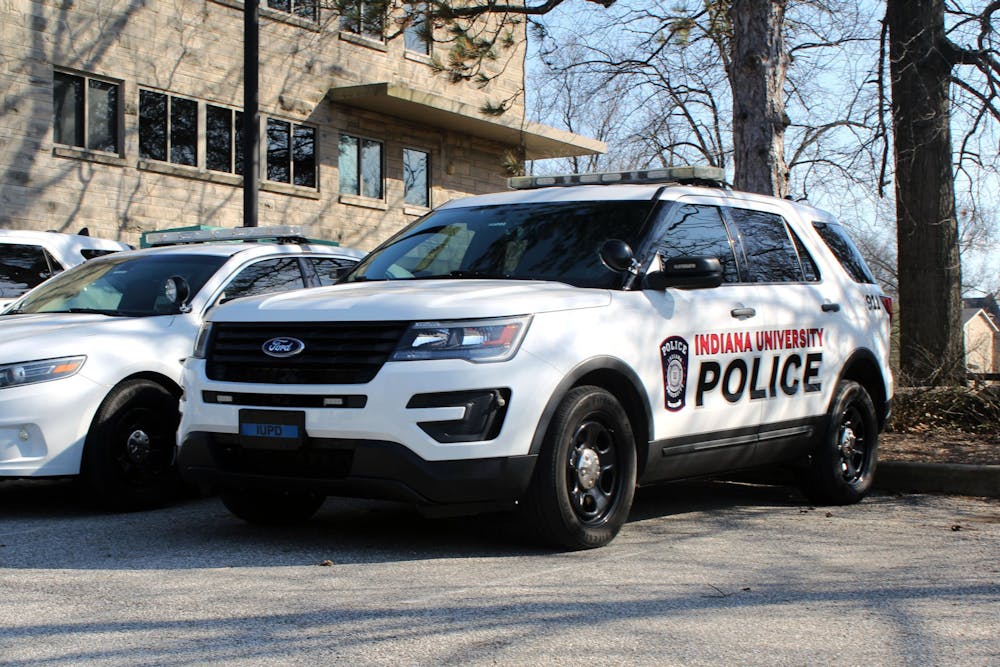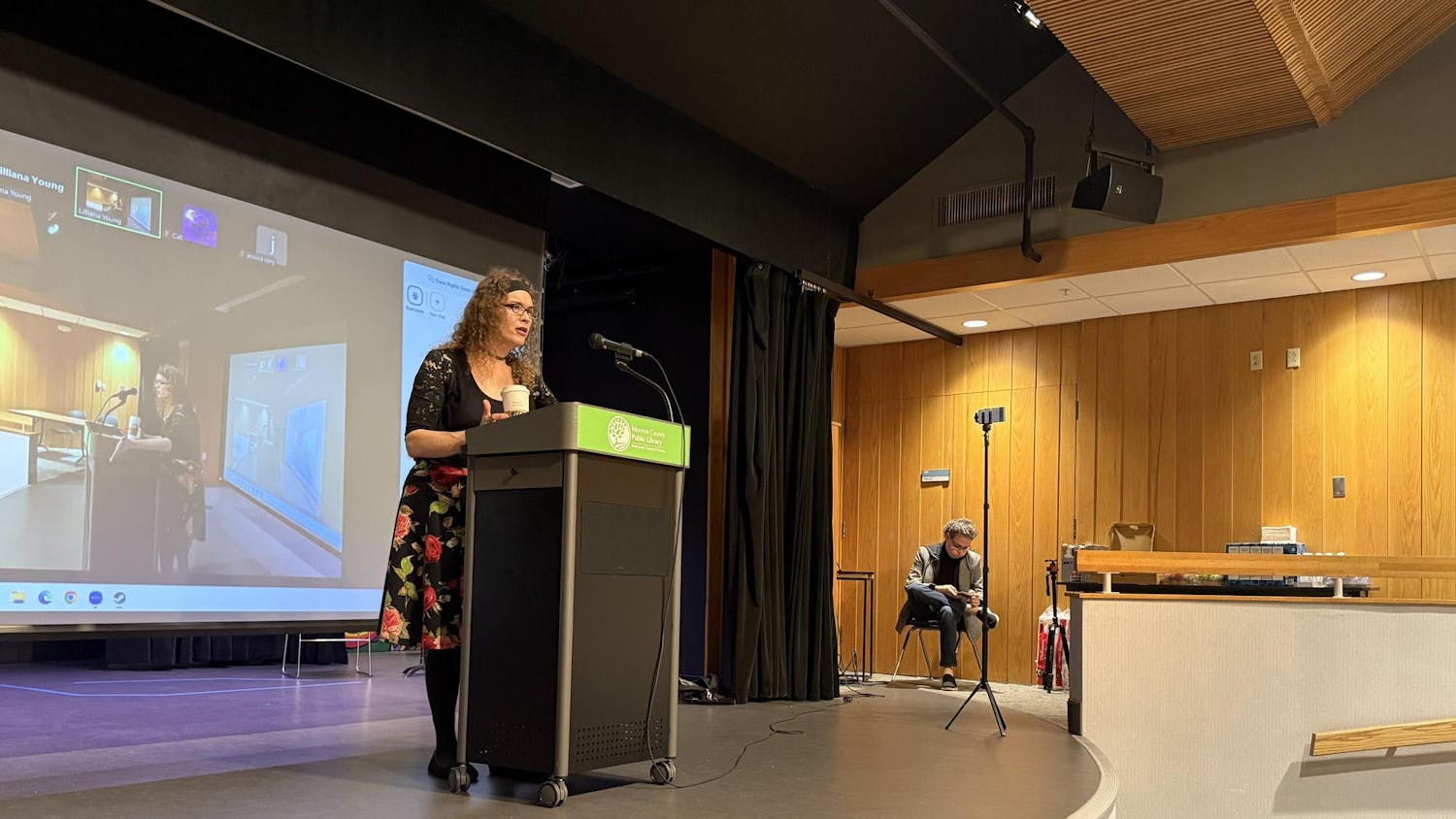The Bloomington Police Department is short-staffed and strained, Fraternal Order of Police President Paul Post said. Competing with other police departments in the county and dealing with the high cost of living in Bloomington, Post said the issue of recruitment and retention has been going on for years.
Despite nationwide staffing issues, young officers and cadets from the IU Police Department are optimistic about the future of serving their communities and changing police perception.
BPD struggles with recruitment and retention
Post, whose work at Bloomington’s FOP chapter aims to represent officers in matters of salary, hours and safety, said BPD is still struggling with recruitment and retention. He said the department has about 87 officers but is budgeted for 105, which puts a strain on current officers.
Post said the staffing shortages began in 2015 or 2016, and he believes hiring difficulties were driven by an increase in anti-police attitudes.
As the nation watches instances of police brutality and demands change, perspectives toward police officers have changed, Post said.
According to Bloomington’s open data portal, BPD has had two citizen complaints of improper or excessive force since 2016. The complaints were considered, but no discipline was issued. Although BPD has not had any reported incidents of police brutality, Post said the department is affected by a nationwide response to crimes committed by police officers — often against those in minority communities.
In the last decade, multiple high-profile cases of police brutality against Black people — such as the death of Michael Brown in 2014 and George Floyd in 2020 — have generated calls for reform. The devastation resulting from these cases has lowered trust in police, with only 51% of adults in 2021 reporting that they fully trust the police.
He said the BPD faces competition from other departments and will soon drop to fourth in the county for pay as IUPD and the Indiana State Police prepare to change their pay matrices. BPD’s contract goes through 2026, with starting salaries increasing by a set amount each year, but they won’t be able to change the rate of the increases until the current contract expires, Post said.
Post also said Bloomington is a difficult place to work because of an increased population of people experiencing homelessness and mental health issues, which Post said creates more situations officers respond to.
“It’s a hard sell sometimes for people who are really doing their research,” he said.
[Related: Indiana bill could require observers to stay 25 feet away from police interactions]
Post said Mayor Hamilton’s down-payment assistance program is not exactly new, and that a traditional down payment assistance program had been in place for two years. The new program, announced in February, would provide $100,000 in down-payment assistance for up to 10 police officers and 10 firefighters to make it more affordable for officers to live in Bloomington.
But Post isn’t sure the program will help, recalling an officer who applied to the traditional program but was denied due to timing.
“I don’t know of a single officer that has been approved for the down payment assistance,” he said.
Post explained that a patrol shift has a minimum staffing number, meaning officers don’t have a lot of flexibility when someone is needed, particularly if there is an injury. This leads to officers working mandatory overtime and handling more calls per officer than in the past.
Post describes an officer hired two years ago who couldn’t get off work for his own wedding. In the end, he had to trade shifts with another officer.
“That shouldn’t be happening,” he said. “That’s demoralizing for your workforce.”
When asked why Post stayed in law enforcement despite strain, he responded that he was trying to leave the profession better than we when he found it.
“It’s a calling,” he said.
The IDS reached out to the city communications director Andrew Krebbs and BPD Chief Michael Diekhoff but did not receive a response by publication.
A look at police officer pay
At BPD, the starting salary for a certified officer is $66,327. The starting salary will increase over the next few years, reaching $72,266 in 2026.
Officers can also receive benefits depending on their specialty, level of training and education level.
IUPD officers receive a minimum salary of $51,344 after three years of experience and get paid additional amounts for specialties.
[Related: Police union speaks out against city council decision to move police headquarters]
In comparison, the median salary for an Indiana police officer in 2021 was $61,800.
In 2021, a Police Executive Research Forum survey found law enforcement agencies nationwide were only filling 93% of spots on average. The survey also found only a slight reduction in hiring, with more of the staffing issues being driven by resignation and retirement, which increased 18% and 45% respectively from the previous year.
IU students talk experience with IUPD
Julia Nowak, an IU student and part-time IUPD officer, has always wanted to pursue a career in law enforcement. In high school, Nowak interned for her local police department and rode along with an officer who emphasized community engagement, which she said only furthered her interest in the field. Nowak said IUPD also focuses on community engagement.
Sonomi Okazaki, another part-time IUPD officer and student, said she came to IU from California and was excited when she saw IU offered the opportunity to train to be an officer while in school. She initially wanted to go into the military but knew she ultimately wanted a career in law enforcement.
“At the end of the day I just wanted to help people in some way, shape or form,” she said.
Will Farrell, an IU student and IUPD cadet, didn’t think about the career until he ran into an IUPD officer his sophomore year. After that conversation, Farrell decided he wanted to help his community.
Nowak, Okazaki and Farrell have all been through, or are currently part of, IU’s Cadet Officer Program, which allows students to train and become law enforcement officers while still in school. It is the only program in the nation that allows students to work as police officers.
All three said the challenges of the career haven’t increased — the types of challenges have just changed, particularly when it comes to how officers engage with the community.
“I think we’re pretty lucky to be a part of a progressive department,” Nowak said.
Okazaki said IUPD also places a lot of importance on mental health and officer wellbeing, which isn’t always the case in other departments.
When it comes to nationwide staff shortages, Farrell said more than just police officers have been affected, citing a shortage of emergency medical service workers. Nowak cited the pandemic as a major reason for shortages, and the others agreed.
[Related: IUPD now requiring bystander training for officers]
Nowak said IUPD recruited a class of 50 cadets this year, showing improvement in staffing challenges.
Okazaki and Nowak both said workplace environment is important to them. Both have already committed to becoming full-time officers at IUPD after they graduate.
“I think I would want a job where the employer cares about me and doesn’t see me as another cog in the machine,” Okazaki said.
Farrell said law enforcement is like a big family, even outside one’s department. He said the department often gets help from BPD, Indiana State Police and the Ellettsville Police Department during IU sports games.
“Yeah, it takes a village, so we’re thankful for it,” Nowak said.
Okazaki said individual officers can’t change what the world thinks about policing, but they can change the perspectives of people around them by creating positive interactions. She said interacting with students was one of the most rewarding parts of the job. Farrell agreed.
“It’s those little interactions that bring people in,” he said.




